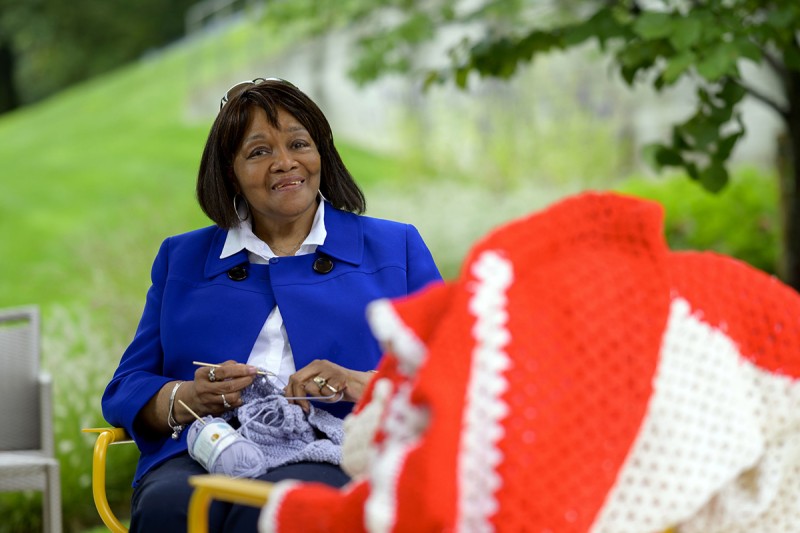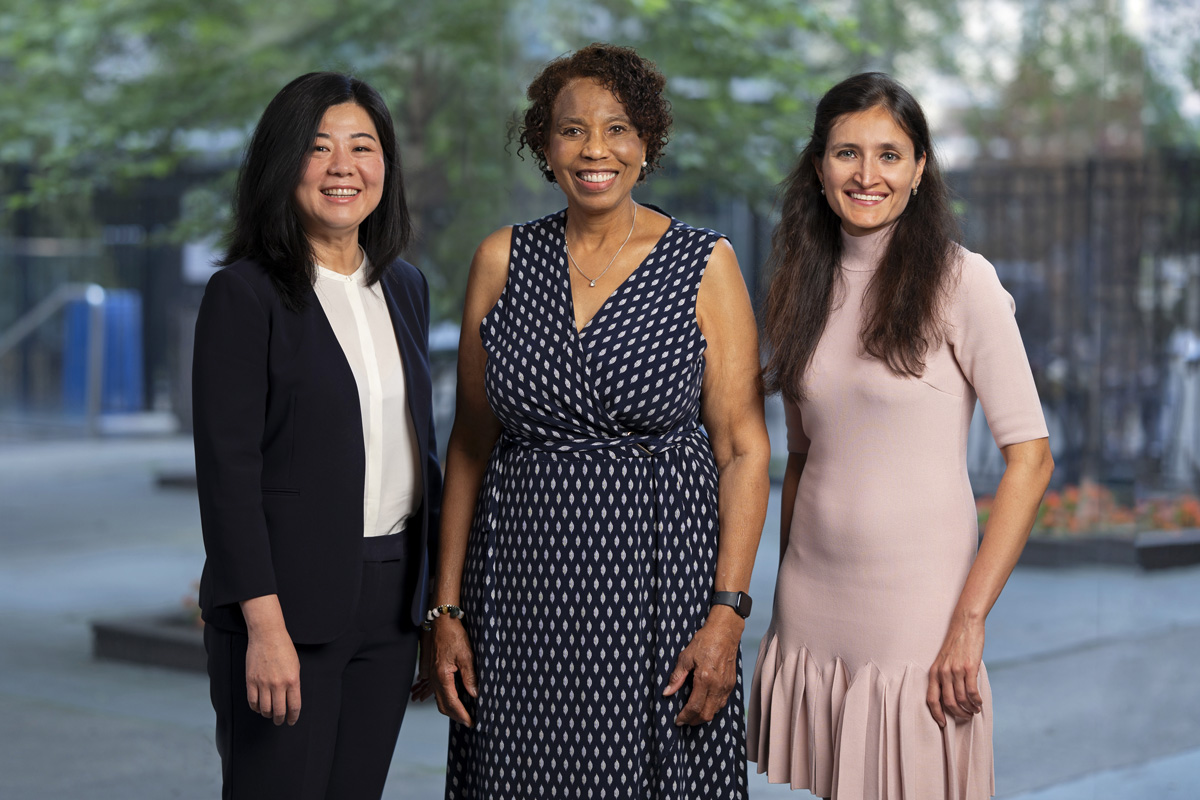
When Vivian Moore was diagnosed with breast cancer at age 80, her MSK team tailored her treatment based on her age and overall health as well as the type of cancer she had.
When Vivian Moore was diagnosed with breast cancer at age 80, she worried how well she would tolerate the treatments. Living a full life, she was active in her church and busy with sewing, knitting, and sketching. She wanted to continue doing the things she loves.
While some elderly patients may wonder whether undergoing cancer therapy at their age is worth it, Ms. Moore never considered foregoing treatment. She knew right away she wanted to go to Memorial Sloan Kettering Cancer Center (MSK), where she had been treated for bladder cancer 10 years earlier. “I felt comfortable there,” she says. “And I had a lot of confidence that their team would get me through whatever I was facing.”
MSK has breast cancer experts with special training and experience treating patients over age 65.
“We felt like the whole team looked closely at my mom’s individual case to determine what treatments she could tolerate,” says Ms. Moore’s daughter, Nicole. “They didn’t make assumptions based on her age, but took a very holistic approach.”

(From left) Drs. Iris Zhi, Diana Lake, and Jasmeet Singh lead MSK’s program focused on treating breast cancer in adults over 65.
The Needs of Older Patients With Breast Cancer
Ms. Moore’s cancer was detected during a screening mammogram. Although research has shown that mammography reduces the risk of dying from breast cancer, none of these studies included women 75 and older, like Ms. Moore. MSK recommends mammograms be given according to a patient’s individual needs and circumstances.
Overall, the risk of breast cancer increases as you age. About 8 in 10 breast cancers are found in females over 50, and about 40% of all breast cancers occur among women aged 65 years and older.
The toll cancer treatment takes on the body can be a special concern for seniors with other age-related conditions such as diabetes, cardiovascular disease, and memory issues.
In addition to expert cancer care, older patients may need specialists in heart health, physical rehabilitation, nutrition, pain relief, and more. MSK also offers counseling and support groups that address older patients’ emotional and financial needs.
With a treatment plan tailored just for her, Ms. Moore was able to tolerate surgery, chemotherapy, and radiation. Now 82, she is cancer free and has no lasting side effects from the therapy. Her quality of life is excellent.
Treating Aggressive Triple-Negative Breast Cancer in Older Patients
When Ms. Moore met with breast surgeon Hiram Cody, MD, he told her that her cancer was early stage. Although a majority of breast cancers are hormone-receptor positive (hormone sensitive) and can be treated with anti-estrogen pills, hers was hormone-receptor negative (“triple negative”) and more likely to require chemotherapy.
“With older patients like Ms. Moore, whose cancer has not spread to the lymph nodes, we try to minimize the extent of treatments after surgery,” Dr. Cody explains. “But because hers was triple negative, it was important that we try to make sure that all the cancer was eliminated.”
Dr. Cody performed a lumpectomy to remove the tumor and confirmed the cancer had not spread to the lymph nodes. Then Ms. Moore received chemotherapy from breast oncologist Diana Lake, MD, and radiation therapy from radiation oncologist Quincey LaPlant, MD, PhD, and his nurse Robertta Ritacco. For both therapies, Ms. Moore was given treatment based on the best evidence in her age group and her overall health conditions.
“At MSK, we always try to optimize cure rates and minimize the side effects of treatment, not just for older patients but for everyone,” Dr. Cody says. “We individualize care for each patient based on their disease and their overall health.”
Ms. Moore also had diabetes and a history of blood clots. These conditions were considered in planning her treatment, Dr. Cody says, but ultimately did not impact her treatment plan. She had surgery at Memorial Hospital in Manhattan, but the rest of her treatment, including chemotherapy and radiation, was provided at MSK Westchester, closer to her home.
Reducing Side Effects and Providing Supportive Care for Older Patients With Breast Cancer
The chemotherapy and radiation both made Ms. Moore feel extremely tired, but otherwise she didn’t have any serious side effects, and her body bounced back quickly after her treatments were finished. She felt well cared for by everyone on her team, especially by Dr. Lake’s nurse, Catherine Pisano, who was always happy to answer all her questions.
Geriatrician Farnia Amirnia, MD, evaluated Ms. Moore to make sure the chemotherapy was not causing any problems with her thinking and mental processing. Cognitive issues can be a side effect of the drugs used to treat breast cancer, especially in older people. Thankfully, they were not a problem for Ms. Moore. Dr. Amirnia also confirmed that Ms. Moore was eating well, was remaining upbeat during treatment, and had strong support from friends and family.
Grateful to be cancer free, Ms. Moore continues to be monitored by Dr. Lake at MSK Westchester, going in every six months for a mammogram and blood work. Her age has given her the wisdom of experience.
“When I was diagnosed with bladder cancer in 2011, it was really a shock,” Ms. Moore says. “When I got my second cancer diagnosis, I was able to handle it better psychologically, because I knew what to expect. I didn’t get nervous or depressed, and relied on my faith — I just continued to live the life I was living. That’s what I’m still doing today.”